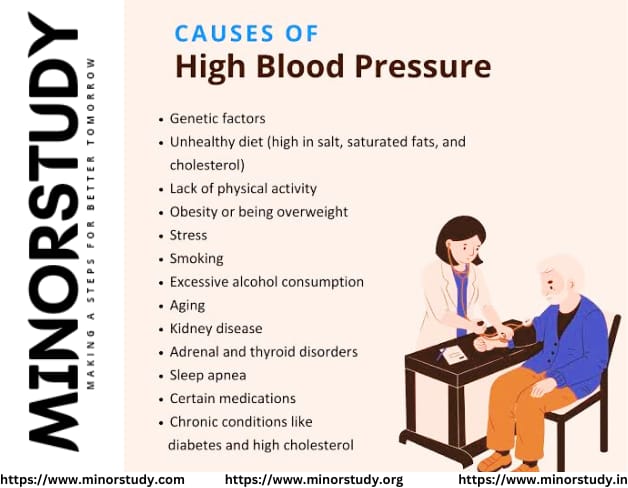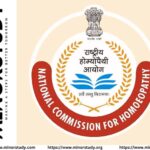🫀 9 Shocking Truths About High Blood Pressure You Can’t Afford to Ignore
High blood pressure—also known as Hypertension—is often called the “silent killer.” Why? Because it creeps up quietly, without obvious symptoms, yet it drastically increases the risk of heart attacks, strokes, kidney failure, and even death.
- 🩺 What Is High Blood Pressure?
- 📜 History of High Blood Pressure
- 📊 9 Shocking Facts About High Blood Pressure
- 📅 Timeline of Key Events in Hypertension Awareness
- ❓ FAQs About High Blood Pressure
- ❓ Is high blood pressure dangerous?
- ❓ What causes high blood pressure?
- ❓ Can I feel symptoms?
- ❓ How can I reduce my blood pressure naturally?
- ❓ Do I need medicine forever?
- 🌍 Significance of High Blood Pressure Awareness
- 🎗️ World Hypertension Day
- 🎉 Heartfelt Wishes for Awareness Campaigns
- ✅ Important Points at a Glance
- 🧬 Importance in Our Life and Society
- 🧭 Daily Life Impacts
- 🧠 Conclusion: Control the Silent Killer Before It Controls You
But don’t panic—because understanding hypertension can be life-saving.
In this deeply informative article, let’s explore everything about high blood pressure: its history, medical facts, causes, FAQs, significance, timeline, and real-life impact. We’ll also share powerful messages, useful lifestyle tips, and reasons why awareness about hypertension is critical for society.
🩺 What Is High Blood Pressure?
High blood pressure (Hypertension) occurs when the force of the blood against the artery walls is consistently too high. It’s measured using two numbers:
Systolic (top number): Pressure when your heart beats.
Diastolic (bottom number): Pressure when your heart rests between beats.
Normal: 120/80 mmHg
High: 140/90 mmHg or above (may vary with guidelines)
📜 History of High Blood Pressure
Ancient Times: While not fully understood, ancient physicians like Hippocrates linked lifestyle factors with heart and pulse conditions.
18th Century: British clergyman Stephen Hales made the first measurement of blood pressure in animals.
1896: Scipione Riva-Rocci, an Italian physician, developed the modern sphygmomanometer.
1905: Russian physician Korotkoff introduced the technique of listening to arterial sounds—still used today.
20th Century: Hypertension was recognized as a major risk factor for cardiovascular diseases.
Present Day: With increasing lifestyle diseases, 1 in 3 adults globally now suffers from high blood pressure.
📊 9 Shocking Facts About High Blood Pressure
Over 1.4 billion people worldwide live with high blood pressure.
It’s the leading risk factor for premature death globally.
50% of people with hypertension don’t even know they have it.
It can cause permanent damage to the brain, kidneys, and eyes.
Stress, diet, genetics, and inactivity are key contributors.
It is not limited to the elderly—young adults are increasingly affected.
Salt (sodium) is a major villain; reducing it helps significantly.
Proper medication adherence can reduce complications by 30–40%.
Despite its dangers, hypertension is largely preventable and manageable.
📅 Timeline of Key Events in Hypertension Awareness
1700s – First experiments with blood pressure in animals.
1896 – First modern BP device (sphygmomanometer).
1940s–1960s – Research linked hypertension with heart disease.
1977 – The WHO launched global campaigns for cardiovascular health.
2000s – Hypertension guidelines standardized across countries.
2013 – World Hypertension Day was globally adopted on May 17.
2020+ – Lifestyle changes post-COVID increased hypertension concerns.
❓ FAQs About High Blood Pressure
❓ Is high blood pressure dangerous?
Yes. If untreated, it can lead to heart attacks, strokes, kidney failure, and even death.
❓ What causes high blood pressure?
Poor diet (especially salty or fatty foods)
Lack of exercise
Obesity
Excess alcohol or caffeine
Smoking
Chronic stress
Genetics
❓ Can I feel symptoms?
Often, there are no clear symptoms. That’s why it’s called the “silent killer.” Some may experience:
Headaches
Dizziness
Nosebleeds
Blurred vision
But these usually occur when it’s already dangerously high.
❓ How can I reduce my blood pressure naturally?
Eat more fruits and vegetables
Reduce salt and processed foods
Exercise 30 minutes daily
Practice yoga or meditation
Get quality sleep
Limit caffeine and alcohol
Quit smoking
❓ Do I need medicine forever?
Not always. Some people manage it with lifestyle changes alone. However, others may need lifelong medication, especially if risk factors persist.
🌍 Significance of High Blood Pressure Awareness
Understanding and controlling blood pressure can save millions of lives annually. Here’s why it matters:
Heart Health: Prevents heart disease—the world’s #1 killer.
Brain Health: Reduces the risk of strokes and dementia.
Kidney Protection: Hypertension is a leading cause of kidney failure.
Pregnancy Safety: Helps manage conditions like preeclampsia in expectant mothers.
Economic Impact: Reduces long-term healthcare costs and hospitalizations.
🎗️ World Hypertension Day
Date: May 17 every year
Theme (2024): “Measure Your Blood Pressure Accurately, Control It, Live Longer”
Organized by: World Hypertension League in collaboration with WHO and other medical associations.
💡 How it is Observed:
Free health screenings in clinics
Online and offline educational webinars
Walkathons and heart-health camps
Distribution of brochures and pamphlets
Social media campaigns using hashtags like #WorldHypertensionDay and #KnowYourNumbers
🎉 Heartfelt Wishes for Awareness Campaigns
💖 “Keep calm and check your BP—Your heart deserves love. #WorldHypertensionDay”
🫀 “A little pressure can do big harm. Monitor your BP, save your life.”
🌱 “Healthy lifestyle, healthy pressure. Happy World Hypertension Day!”
🔔 “It’s silent, but deadly. Let’s break the silence on high blood pressure.”
🧠 “Measure. Manage. Live longer. #HighBPNoMore”
✅ Important Points at a Glance
High blood pressure affects 1 in 3 adults globally.
It is a major risk factor for heart and kidney disease.
Early detection is crucial, as symptoms are rare.
Lifestyle changes and medication can effectively manage it.
Observed globally on May 17 as World Hypertension Day.
🧬 Importance in Our Life and Society
🏥 For Individuals:
Regular checkups can prevent serious health issues.
Understanding BP helps in taking proactive control of health.
It encourages dietary discipline and exercise routines.
👨👩👧 For Families:
Reducing salt and cooking healthy meals benefits everyone.
Early screening in genetics-prone families saves lives.
Role modeling healthy habits for children.
🏛️ For Society:
Reduces public healthcare burden.
Promotes workplace wellness.
Encourages better health education in schools.
Contributes to SDG Goal 3: Good Health and Well-being.
🧭 Daily Life Impacts
Food choices shift toward heart-friendly options (low sodium, fiber-rich).
Office environments may offer regular BP checks and stress-relief breaks.
Fitness routines become essential lifestyle components.
Pharmacies and medical stores increase focus on BP monitoring devices.
People become more emotionally aware, managing stress better.
🧠 Conclusion: Control the Silent Killer Before It Controls You
High blood pressure isn’t just a condition—it’s a global wake-up call. While it remains one of the most widespread health concerns, it’s also among the most controllable.
By understanding the risks, taking small but powerful lifestyle steps, and encouraging regular screening, we can turn the tide on hypertension.
Let’s pledge to listen to our hearts—literally. Because a few numbers on a blood pressure monitor can determine decades of your life.








